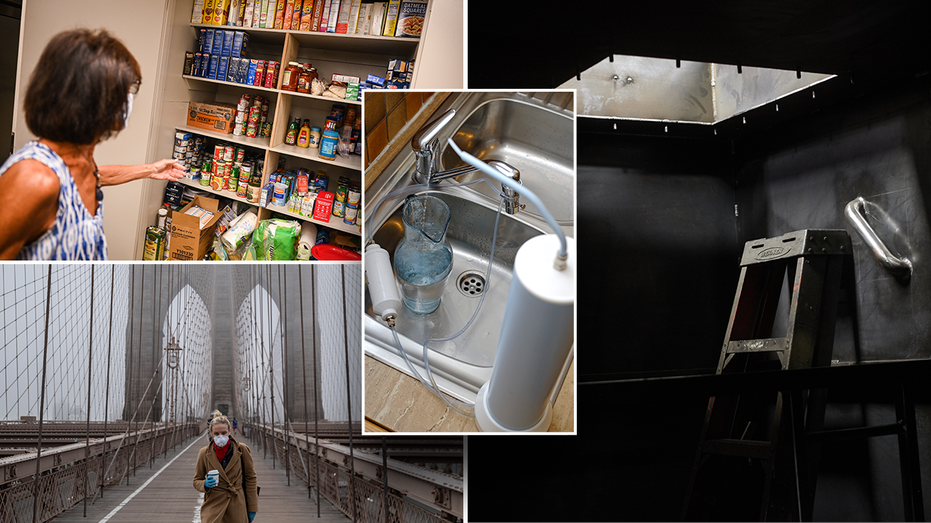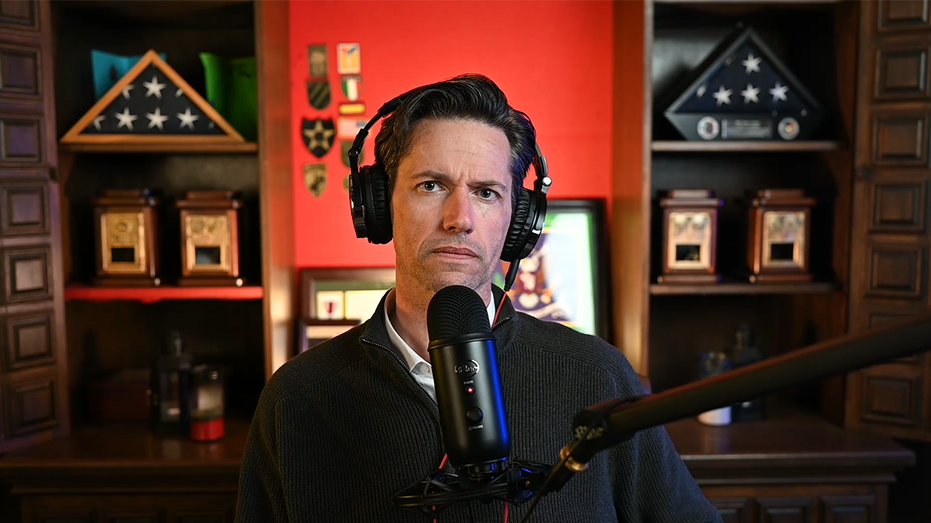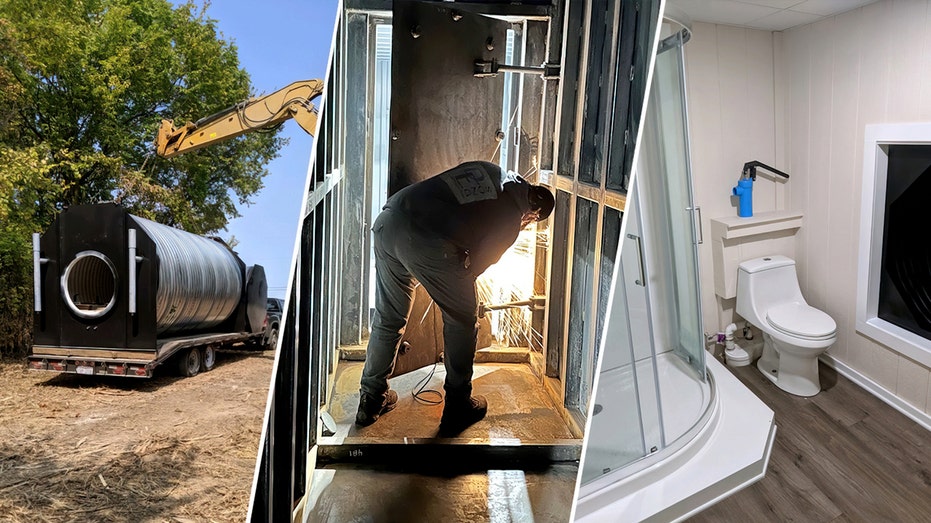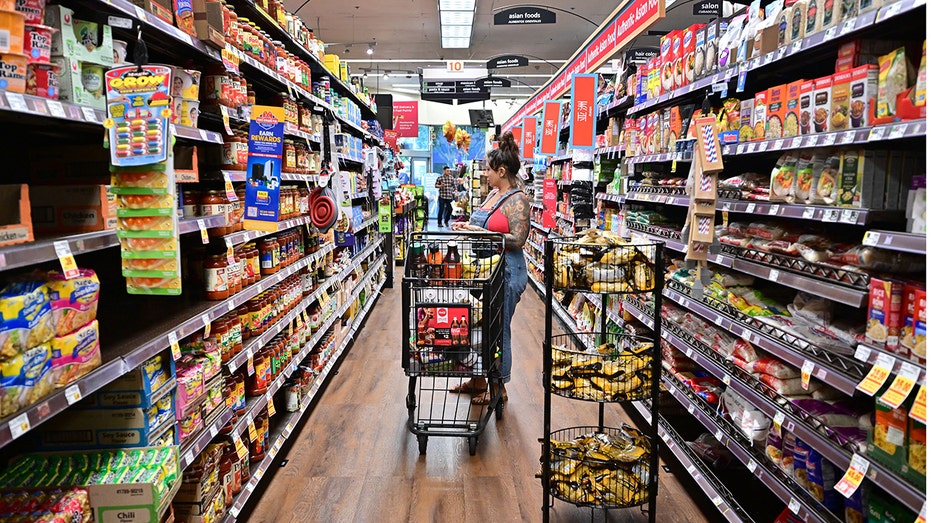Would you survive a doomsday scenario? Preppers offer Americans tips to weather a supply chain crisis
Lab-grown meats, the threat of electrical grid outages and overseas conflicts are pushing Americans to alternative food sources
Prepper reveals how families can self-sustain amid crises, supply chain disruptions
Prepper All Naturals founder Jason Nelson said he wanted to provide a product so people can prepare for events like pandemics and extreme weather.
Doomsday prepping was once a concept people believed was reserved for conspiracy theorists and paranoid uncles, but fallout from the COVID-19 pandemic is leading more and more Americans to plan ahead in the event of a future catastrophe.
According to a March report by Zion Market Research, the global survival tools market is expected to reach $2.46 billion by 2030, growing at a compound annual growth rate (CAGR) of over 7 percent from 2023 to 2030.
Meanwhile, the once-fringe idea of building a doomsday bunker is becoming popular among celebrities and wealthy industry leaders. In December, it was revealed that Meta CEO Mark Zuckerberg is building a 4,000-square-foot underground shelter at his massive Hawaii compound. Kim Kardashian, Tom Cruise and Shaquille O'Neal have also reportedly built bunkers or safe rooms.
"People will ask me, 'What's prepping?' And I go, well, that's essentially what your grandmother did to get ready for winter," Prepper All Naturals founder Jason Nelson told Fox News Digital.
BUNKERS AREN'T JUST FOR BILLIONAIRES: INSIDE UNDERGROUND SPACES FOR AVERAGE AMERICANS

Doomsday prepping has grown significantly as an industry since the COVID-19 pandemic. (Steve Pfost/Newsday RM /BSIP/Universal Images Group/Victor J. Blue/Cooper Neill/Bloomberg via Getty Images / Getty Images)
Amid a recovering supply chain, two brewing conflicts involving nuclear powers, hackers bent on compromising electric infrastructure, the possibility of solar flares and concerns about engineered bioweapons, Nelson said it is not unrealistic to look at the world today and say: How prepared am I to take care of my family?"
"Americans have this Armageddon-type thing where they think that there's a secret space shuttle waiting to go get that meteor. You know, there's always an answer somewhere. Somebody's hidden something underground. And we're good, right? We like to believe that our big government has got a solution for everything."
But the truth, according to Nelson, is that while there are plans, there is no one-size-fits-all solution for any one-size problem, and the government cannot reasonably have a plan that accounts for everything.
Nelson calculated that if a freezer goes out, people will only have that food for three days. If the power goes out, Americans are now reduced to five days of food in their homes. A local suburban or urban area will also have about two weeks of food and has generators if the power goes out, but when people are dependent on storefronts, they will quickly be emptied out.
"In the event of even a temporary supply chain collapse, most homes are within two weeks of being entirely dependent on handouts from a government entity or non-government organization," Nelson said.
"Anybody who doesn't have 3 to 6 months of basic staples and food within your home, and the ability to grow a garden. Then what's your plan? I mean, these are not weird concepts to talk about," he added.
Nelson believes the negative connotations around prepping are changing as the products change. He said it is slowly becoming less about stockpiling weapons and ammunition in the event of societal collapse but rather a "break glass in case of emergency" mentality.
JEFF BEZOS BUYS $68 MILLION MANSION IN MIAMI'S EXCLUSIVE ‘BILLIONAIRE BUNKER’

Family man and combat-disabled veteran Jason Nelson founded Prepper All Naturals after seeing just how little the average American is ready for events like pandemics or extreme weather. (Fox News Digital / Fox News)
Years ago, a family looking to purchase a generator would have to search around the commercial sector or products typically used on large construction sites. Today, major retailers are offering a plethora of sleek, compact generators for at-home use.
Major corporations, such as Costco, have started supplying emergency food packages or "on-the-go" kits that can help provide Americans with nourishment in case of a shortage.
However, these kits are often lacking in vital nutrients that will make it difficult to survive in the event of long-term food inaccessibility.
"The Costco prepper kits might help you survive, but we want the population to 'surthrive' and that will require more than just a box full of pasta and beans," Nelson said.
In the event of a supply chain crisis, people should have access to grains and preserved vegetables. Still, quality protein is likely to be the most challenging sustenance to acquire.
According to the Prepper All Naturals founder, the paradigm around prepping is shifting. Nelson said it is not just a shortage that could lead people to alternative products, but a concern about a not-too-distant future where quality, clean meat is difficult to obtain.
A quick glimpse on social media will lead to numerous videos of Americans living in urban areas complaining about an influx of artificial, lab-grown beef, edible bugs, cattle treated with vaccines, and a lack of wild-caught fish free from antibiotics.

Veteran-owned and operated USA Bunker Company is one of several companies that offer shelters ranging from $21,000 to the upper-hundred of thousands. (ExSpar Inc/FOX News Digital / Fox News)
The above possibilities led Nelson to create products he thought could help Americans eliminate their dependency on the government and become self-sustaining. He partnered with Texas cattle ranchers to ship high-quality freeze-dried beef to the masses. At a minimum, the beef can retain quality for up to a decade but may be edible for 25 years. The product contains only one ingredient: beef, stored in mylar bags with oxygen absorbers made in the U.S.
He said he views food storage and cultivation as a type of "insurance" for families in the event of supply chain disruption.
As a food company owner, Nelson said people often expect him to tell them they should go buy things to eat in the event of a calamity. His response is often based on his understanding of Maslow's Hierarchy of Needs, a psychological concept that describes the five levels of things that motivate human nature.
"The first thing I tell people is, do you have a reverse osmosis machine? Do you understand how much water you consume? Even if you have the ability to filter your water, do you have the ability to collect that water?" he said.
Access to medicine is also a serious and overlooked concern. While a young American under the age of 30 is significantly less likely to be taking medication regularly, older citizens over the age of 50 have at least one medication they take daily.
Furthermore, a significant percentage of the ingredients used in American medicines come from China.
Nelson said people should have at least 90 days of medicine stocked if that drug is necessary to live with a "semblance of normalcy" or would have a "deleterious effect" on existence if the individual suddenly stopped taking it.

In the event of a serious supply chain crisis, Americans may be unable to obtain the proper foods from their nearby grocery stores. ((Photo by FREDERIC J. BROWN/AFP via Getty Images) / Getty Images)
Joe Bassett is the founder of Valiant Outfitters, which provides wilderness guide services and survival training. He said that a prevalent misconception about prepping is that it is based on "sexy" or "Hollywood" type disasters (zombie apocalypse). However, he said prepping is instead about getting ready for likely disasters, such as blizzards or earthquakes.
Where he lives in Florida, hurricanes are likely disasters. Bassett has been deployed in the state as a disaster response radio communicator six times because his specialization is amateur radio emergency services (ham).
"Another misunderstanding is that prepping is about gear; if you have the newest and shiniest gadgets, then you'll survive. Many people new to the prepping community spend thousands of dollars on gear but never develop skills that are adequate for survival," he said.
According to Bassett, a "bugout bag" can be built for less than $100. However, he insisted that basic survival skills are far more important, referencing the adage, "You'll eventually run out of room in your bag but never in your mind."
GET FOX BUSINESS ON THE GO BY CLICKING HERE
Bassett said that COVID-19 has led to a new trend in virtual training. While he does not believe watching a YouTube video will ever replace in-person "sweat equity," numerous online courses teach long-term food storage, wilderness first-aid, blacksmithing and cover many other areas of expertise.
The good news, he said, is that the skills necessary for likely disasters will still serve you well if or when society collapses.




















